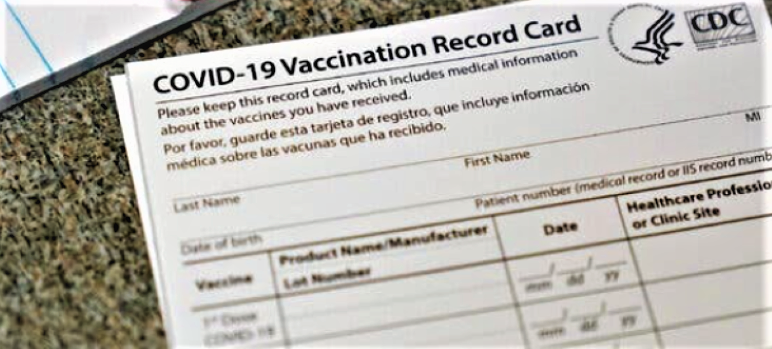Don’t, state officials have said, call it a vaccine passport.
California residents won’t be required to carry the digital vaccination record that the state introduced last week. Businesses don’t have to ask for it. And you can still use your paper vaccine card if you want.
According to the state technology workers who created it, the digital record is simply a free tool for navigating a world in which you may be asked to show that you’ve been inoculated against Covid-19.
Millions of Californians have gotten their coronavirus vaccinations, Dr. Erica Pan, the state’s top epidemiologist, noted in a Jan. 18 news conference. “The odds are someone is going to misplace their paper vaccine card,” she said. “This is a backup.”
Still confused? Here’s what else you need to know:
How does this digital vaccine verification work?
If you’ve been vaccinated in California — not just against Covid-19, but for any disease — that inoculation should be recorded in the state’s immunization registry.
Essentially, when you plug in your name, birthday and contact information, the new system checks that information against the state’s registry. If you’re listed, you’ll be sent an email with a link to your digital Covid-19 vaccine card, which is accessible only with a PIN of your choosing.
Once you put in your PIN and access the card, it will allow you to digitally carry the same information that’s on your paper record, plus a QR code that you can screenshot and save.
You don’t need to download a separate app to get the record.
When might I need to use it?
Although businesses can largely decide whether to require patrons to show proof that they’ve been vaccinated if they want to enter without a mask, state officials said they expect that entertainment and sports venues may do so.
Pan said that one of the most common instances in which Californians may want to quickly and officially show they’ve gotten vaccinated is when they’re traveling — particularly abroad.
“Many countries require proof of vaccination to enter,” she said.
Do other states have something similar?
New York recently introduced its Excelsior Pass, which vaccinated residents flash at Yankees and Mets games, as well as comedy clubs and a small number of bars and restaurants. But many of those uses were expected to fall by the wayside as virus restrictions go away.
New York’s system was created by IBM, under a contract. California’s version was built by the state.
How do I know it’s secure?
Rick Klau, California’s chief technology innovation officer, said at last week’s news conference that the state’s vaccine records had been created according to an open-source SMART Health Card framework developed by the Vaccine Credential Initiative, a coalition of public and private institutions meant to make it easier for various vaccine providers to give people access to their health records while also keeping that information safe.
For more:
- Track California’s vaccination rates and case numbers.
- Track Santa Clara County’s COVID-19 data.
- Read about why experts say the term “vaccine passport” is misleading and about the debate over vaccine verification.
- Get your own digital vaccine verification at myvaccinerecord.cdph.ca.gov.
Jill Cowan is a reporter with the New York Times. This article originally appeared in California Today, an online publication of the New York Times, copyright 2021.

